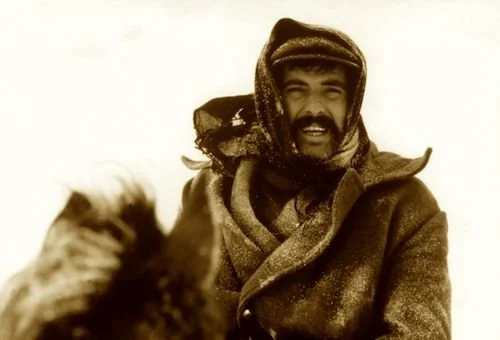Yol
Written by Andreas Babiolakis
This review is a part of the Palme d’Or Project: a review of every single Palme d’Or winner at Cannes Film Festival. Yol won the twenty seventh Palme d’Or at the 1982 festival, which it shared with Missing.
The film was selected by the following jury.
Jury President: Giorgio Strehler.
Jury: Jean-Jacques Annaud, Suso Cecchi d’Amico, Geraldine Chaplin, Gabriel Garcia Márquez, Florian Hopf, Sidney Lumet, Mrinal Sen, Claude Soule, René Thévenet.
How many differences in the lives of those involved can stem from one starting point? Yol is a study that deep dives into the various outcomes of a furlough. As a result, Yol is a number of short stories smushed together so they can occur and resolve simultaneously, and it makes the title of the film far more applicable: the literal translation of “The Path” means that these deviations are conjoined, as if by fate, because of where they start and their confinements within the linearity of cinema. Wherever these characters go, we follow along. These temporary excursions turn into fables, and seeing them all at once can be intentionally overwhelming: like we’re God figures watching our subjects and refusing to intervene when they need help the most. Yol is quite a difficult film likely because of its intentions to combat the dictatorship within Turkey when the film was released: the displaying of a country that may have been more challenging to live within than the prison systems that our main characters are taking a week’s leave from.
Each story possesses a different side of a converged thesis from filmmakers Şerif Gören and Yılmaz Güney; the latter being the writer of the film who was imprisoned while the film was worked on by Gören, and of whom finished post-production direction of the film after escaping from prison (he was charged with the apparent murder of a local judge after he was initially pardoned for the concealing of rebels against the military memorandum). After these important contexts, it’s easy to see why Yol was a controversial release. One tale shows a prisoner returning to him being disowned by his in-laws after abandoning his brother-in-law mid crime to die by cop. Another has an incarcerated husband discovering the abuse his wife has endured in order to get by in a toxic society. Finally, there’s the story about the inmate that flees to Syria during this furlough, as he feels that it is his only way out. These are all people having to answer for their crimes in a world that won’t answer for its own corruption. No wonder why Yol was banned and hated: it’s highly confrontational.
Created by filmmakers that are openly hostile about the political state of their surroundings, Yol was a controversial film when released.
The film vowed to be defiant in a number of ways, including the use of Kurdish and a sympathetic portrayal of the Kurdish community: the Turkish government, during its coup d’état, didn’t take too kindly to this and flat-out banned Yol. Cannes championed the film, as it tied with Missing for the Palme d’Or (coincidentally another film about a coup d’état). Amidst the sanitized major films of the 80s, something like Yol was bound to press buttons, but its provocative nature is not without its champions, either. I think the disconnection we have from this tumultuous time period removes any possibility of Yol being unlikeable for any political reason, but it is still quite a punishing watch (which is pretty much what it needed to be). Some viewers — like myself — find a reward amidst this agony, although not an optimistic one: the recognition of qualms in many societies that need to be addressed. I also tip my hat to films with something gutsy to say, and Yol definitely went the distance. It’s far from an easy watch, but Yol is the kind of statement that begs to be seen at least once, for both historical and artistic reasons. It may be your cup of tea or it may not, but it will at least affect you in some way.
Andreas Babiolakis has a Masters degree in Film and Photography Preservation and Collections Management from Toronto Metropolitan University, as well as a Bachelors degree in Cinema Studies from York University. His favourite times of year are the Criterion Collection flash sales and the annual Toronto International Film Festival.






